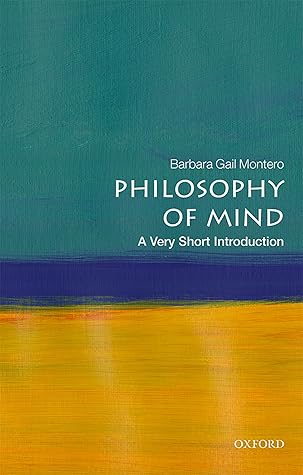More on this book
Kindle Notes & Highlights
Read between
May 30 - June 1, 2025
While each version of physicalism—the identity theory, functionalism, mysterianism, and eliminativism—can be criticized, physicalists nonetheless feel assured that some version of physicalism must be true.
Defining consciousness
What are we trying to understand when we try to understand consciousness? Not only do philosophers have no agreed-upon definition of consciousness, some think that it can’t be defined at all, that you can understand conscious experiences only by having them. Such philosophers see consciousness as Louis Armstrong purportedly saw jazz: if you need to ask what it is, you’re never going to know.
Not only is there a possibility of a science of consciousness, but there is a science of consciousness; for scientists do in fact investigate subjective processes. Would you feel a bee’s wing drop onto your cheek from one centimetre away? How many hairs on the back of your hand need be touched in order for you to notice that they are being touched? These are some of the many questions about conscious experiences that science has cracked (the answers are ‘yes’, and ‘two or three’).
Scientists also investigate the causes and effects of pain, the role of conscious attention in action, the effect of meditation on attention, and visual, auditory and olfactory perception, to name just a few of the ontologically subjective features of the world that yield to scientific investigation.
scientists have found that intracranial electrical stimulation of various areas in the prefrontal cortex can produce feelings of anxiety, olfactory and gustatory sensations, the urge to move and laugh, and other conscious experiences.
The hard problem
a science of consciousness would need to posit consciousness as a fundamental feature of the world. And if consciousness is fundamental, he argues, we should expect it, like other fundamental features of the world—mass, charge, spin—to be pervasive; we should expect to find it not only in humans and not only in all sentient creatures, but also in simpler life forms, such as plants, and even in inanimate objects. Though this position, which is a form of panpsychism, may seem absurd, Chalmers argues that it is less absurd than the idea that consciousness could be explained structurally.
The function of consciousness
All this seems obvious, yet—as I’m sure you know by now—the apparent obviousness of a view rarely prevents philosophers from arguing against it, and some philosophers think that consciousness, despite appearances, is epiphenomenal (it has no purpose). Epiphenomenalists point out that we seem to be able to perform many things without conscious attention:
Chapter 6 Emotions
Body-based theories of emotion
Body-based theories of emotions also reap support from practices such as yoga or meditation that emphasize how calming one’s breathing is conducive to reducing anxiety.
The subtraction argument
Problems for body-based theories
Judgement-based theories of emotions
Problems for the judgement-based account
Embodied emotions Some philosophers maintain that
Chapter 7 Digital Minds
Where does your thinking occur?
Plato’s brain-based, or ‘cephalocentric’, view was inspired not by introspection, but by the work of the physician and anatomist Alcmaeon of Croton.
The extended mind
the ‘parity principle’. According to this principle, a process in the external
world counts as part of the mind if it is the case that the process would be a mental process, if it were to occur inside the head.
the parity principle rules that when Otto consults his notebook, he is consulting his mind.
Should university exams be open phone?
But is it beneficial to always rely on your phone? It is true that for many jobs, one’s Google IQ matters. But is it a good idea to offload memories en masse?
Do computers think?
The Ancient Mayan language room
The Turing test
Alan Turing, the mathematician whose face is on Britain’s £50 note in recognition of, among other things, developing the first fully-fledged theory of computability and playing a key role in cracking the German secret code during the Second World War, suggests that the question of whether a computer could think is too muddled to be addressed. He argues that we should instead ask whether a computer could make us believe it is thinking.
Where ethics and philosophy of mind intersect


